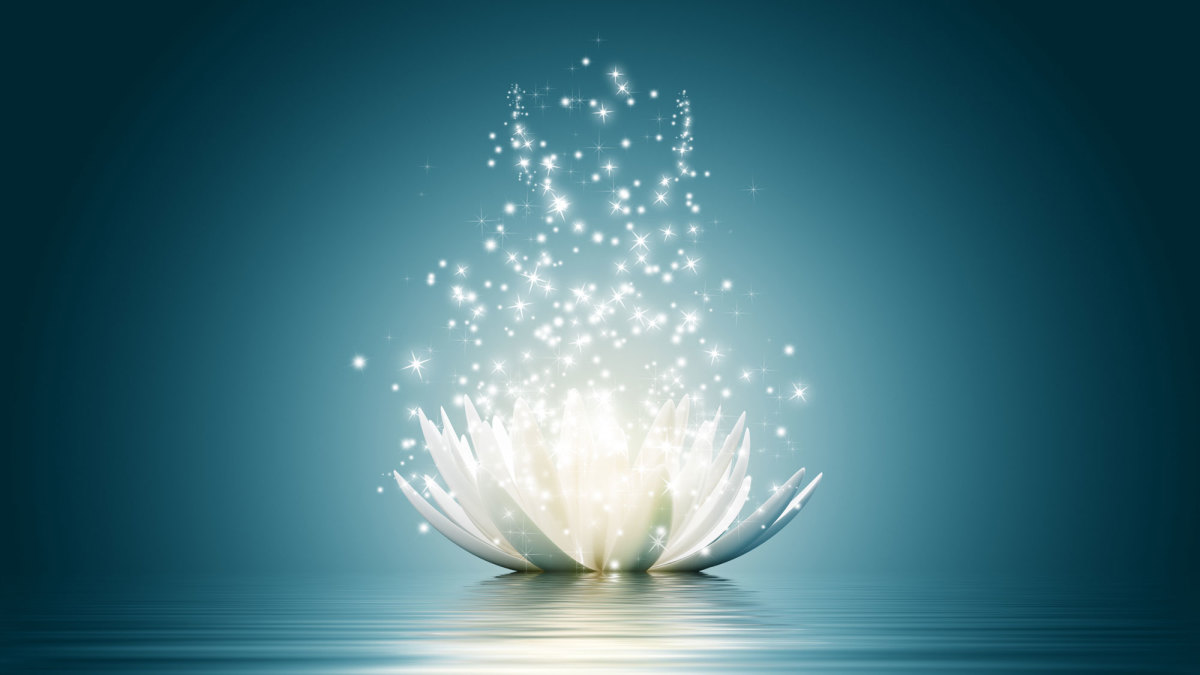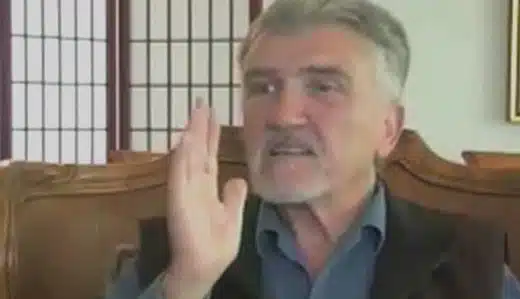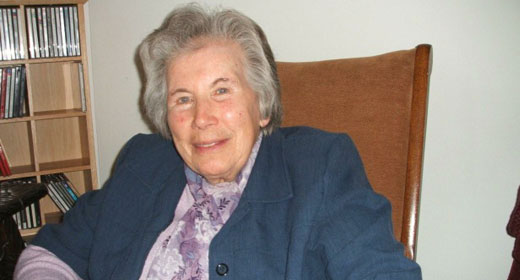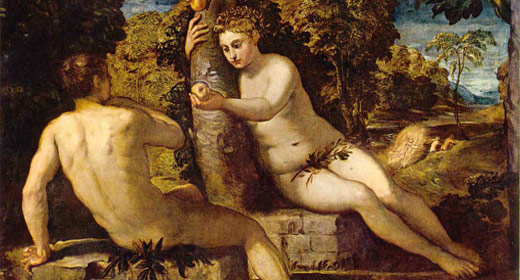by John Horgan: Mysticism has been on my mind again lately, in part because of the success of Why Buddhism Is True by my friend Robert Wright…

During a mystical experience, you feel as though you are encountering absolute reality, whatever the hell that is. Wright explores the possibility that meditation can induce powerful mystical states, including the supreme state known as enlightenment.
I ventured into this territory in my 2003 book Rational Mysticism. I interviewed people with both scholarly and personal knowledge of mystical experiences. One was the Buddhist teacher Stephen Batchelor, a profile of whom I just posted. Another was a professor of philosophy who prefers to remain anonymous. I’ll call him Mike. I didn’t tell Mike’s story in Rational Mysticism, but I’m going to tell it now, because it sheds light on enlightenment.
Before I met Mike, I read an article in which he claimed to have achieved a mystical state devoid of object, subject, or emotion. It occurred in 1972, while he was on a meditation retreat. “I had been meditating alone in my room all morning,” Mike recalls,
When someone knocked on my door. I heard the knock perfectly clearly, and upon hearing it I knew that, although there was no “waking up” before hearing the knock, for some indeterminate length of time prior to the knocking I had not been aware of anything in particular. I had been awake but with no content for my consciousness. Had no one knocked I doubt that I would ever have become aware that I had not been thinking or perceiving.
Mike decided that he had experienced what the Hindu sage Shankara called “unconsciousness.” Mike’s description of his experience, which he called a “pure consciousness event,” baffled me. Can this be the goal of spiritual seeking? To experience not bliss or profound insights but literally nothing? And if you really experience nothing, how can you remember the experience? How do you emerge from this state of oblivion back into ordinary consciousness? How does an experience of nothing promote a sense of spirituality?
Mike, it turned out, lived in a town on the Hudson River not far from my own. Like me, he was married and had kids. I called and told him I was writing a book about mysticism, and he agreed to meet me to talk about his experiences. On a warm spring day in 1999 we met for lunch at a restaurant near his home. Mike had a ruddy complexion, thinning hair, and a scruffy, reddish-brown beard. Eyeing me suspiciously he said, “A friend of mine warned me that I shouldn’t talk to people like you.” His friend’s advice is sound, I replied, journalists are not to be trusted. Mike laughed and seemed to relax (which of course was my insidious intent).
Grilling me about my attitudes toward mysticism, he compulsively completed my sentences for me. I said that when I first heard about enlightenment, my impression was that it changes your entire personality, transforming you into… “A saint,” Mike said. Yes, I continued. But now I suspected that you can have very deep mystical awareness and still be… “An asshole,” Mike said. “So that’s what you want to think about?” he continued, scrutinizing me. “You want to think about whether enlightenment is really all that cool?”
Mike’s edginess lingered as he began telling me about himself. Especially when instructing me on fine points of Hinduism or other mystical doctrines, he spoke with an ironic inflection, mocking his own pretensions. His fascination with enlightenment dated back to the late 1960’s, when he was an undergraduate studying philosophy and became deeply depressed. He tried psychotherapy and Zen, but nothing worked until he started practicing Transcendental Meditation in 1969. Introduced to the west by the Indian sage Maharishi Mahesh Yogi, Transcendental Meditation involves sitting with eyes closed while repeating a phrase, or mantra.
“It was magic, hugely effective,” Mike said of TM. Over the next decade, he became involved in the TM organization. “I hung out with Maharishi a fair amount.” He distanced himself from the TM movement after it began offering seminars on occult practices, notably levitation. “I did that technique,” Mike said. “It was an interesting experience, but it sure as hell wasn’t levitating.” The Maharishi also proposed that the brain waves emitted by large groups of meditators could reduce crime rates and even warfare. “I thought it was silly,” Mike said, “and I didn’t want to be identified with it.”
Mike pursued a doctorate in philosophy in the early 1980’s so that he could defend intellectually what he knew to be true experientially: Through meditation we can gain access to realms of reality that transcend time and space, culture, and individual identity. Yes, as William James documented, mystical visions vary, but mystics from many different traditions, including Christianity, Buddhism, Hinduism, Taoism, and Judaism, have described experiences that are devoid of content. These are what Mike calls pure consciousness events.
“If you say all crows are black, all it takes is one white crow and you’ve blown the thesis,” Mike said. “We got a whole range of these white crows.” Mike noted that if he and I described the restaurant in which we were eating, our descriptions would almost certainly diverge, even though we were seeing the same restaurant. Shankara, Meister Eckhart, and the Zen master Dogen described their pure consciousness events in different ways, but they were experiencing the same deep reality.
Our conversation then took an unexpected turn. I said I was mystified by the notion that enlightenment is nothing more than a “pure consciousness event.”
“That’s not enlightenment!” Mike interrupted. He stared at me, and when he continued he spoke in clipped, precise tones, as if trying to physically embed his words in my brain. The pure consciousness event is just a stepping-stone, at best, to true enlightenment. Pure consciousness events and other mystical states are “fascinating, interesting, very cool things. But they are shifts in perception, not shifts in the structure of perception. And that’s, I think, when things get very interesting, when structural shifts take place.”
Mike held up his water glass. Normally, he said, when you look at an object like this glass, you sense a distinction between the object and yourself. He set the glass down, grabbed my pen from my hand, and scribbled on his napkin. He sketched the glass, complete with ice cubes and lemon, and an eyeball staring at the glass. During a “pure consciousness event,” the object vanishes and only consciousness remains, Mike said, drawing an X through the glass.
There is a higher state of awareness, however, in which consciousness becomes its own subject and object. “It becomes aware of itself. And there is a kind of, not solipsism exactly, but a reflexivity to consciousness.” Bending over his napkin again, Mike drew an arrow that emerged from the eyeball and curled back toward it. “It’s like there is a self-awareness in a new sort of way.”
Our Caesar salads arrived. As the waiter grated parmesan cheese over our bowls, Mike told me about the final state of enlightenment, which he called the “unitive mystical state.” In this state, your awareness enfolds not just your individual consciousness but all of inner and outer reality. “What you are, and what the world is, is now somehow a unit, unified.” Mike drew a circle around the eyeball and the glass.
Are there any levels beyond this one? I asked, pointing to the circle. “I don’t know,” Mike answered, looking genuinely perplexed. “I haven’t read about it, if there is. Some people want to say that there are, beyond here, experiences. But I’m not convinced of that.”
So are you enlightened? I asked. “As I understand it, yes,” Mike replied without hesitating. He had been expecting the question. He scrutinized me, looking for a reaction. “See, that’s tricky. I just gave you a pretty tricky answer. Because I define this stuff pretty narrowly.” He might not be enlightened according to others’ definitions, but according to his definition he reached enlightenment in 1995.
Mike hastened to disabuse me of various myths about enlightenment. When he started meditating in the late 1960’s, he believed that enlightenment “was all going to be fun and games.” He emitted a mock-ecstatic cry and waved his hands in the air. “Just heaven,” he added, snapping his fingers, “like that.” But enlightenment does not make you permanently happy, let alone ecstatic. Instead, it is a state that incorporates all human emotions and qualities: love and hate, desire and fear, wisdom and ignorance. “The ability to hold opposites, emotional opposites, at the same time is really what we’re after.”
Enlightenment is profoundly satisfying and transformative, but the mind remains in many respects unchanged. “You’re still neurotic, and you still hate your mother, or you want to get laid, or whatever the thing is. It’s the same stuff; it doesn’t shift that. But there is a sort of deep”–he raised his hands, as if gripping an invisible basketball, and uttered a growly, guttural grunt—“that didn’t used to be there.”
Far from fostering humility and ego-death, Mike added, mystical experiences can lead to narcissism. Enlightenment is “the biggest power trip you can imagine” and an “aphrodisiac.” When you have a profound mystical revelation, “you think you’re God! And that is going to have a hell of an effect on people… All the little young ladies run around and say, ‘He’s enlightened! He’s God!’”
Have you struggled with that problem yourself? I asked. “Sure!” Mike responded. When he first began having mystical experiences in 1971, he was on top of the world. “And after a while they sort of fall away, and you realize you’re the same jerk you were all along. You just have different insights.” Mike resumed psychotherapy in 1983 to deal with some of his personal problems. “It was the best thing I ever did. Been in it ever since.” (What would it be like, I wondered, to be the therapist for someone who believes he is enlightened?)
Contrary to what some gurus claim, enlightenment does not give you answers to scientific riddles such as the origin of the universe, or of conscious life, Mike said. When I asked if he intuits a divine intelligence underlying reality, he shook his head. “No, no.” Then he reconsidered. He sees ultimate reality as timeless, featureless, Godless, and yet he occasionally feels that he and all of us are part of a larger plan. “I have a sense that things are moving in a certain direction, well beyond anybody’s real control.” Maybe, he said, just as electrons can be described as waves and particles, so ultimate reality might be timeless and aimless—and also have some directionality and purpose.
Evidently dissatisfied with his defense of enlightenment—or sensing that I was dissatisfied with it–Mike tried again. He has an increased ability to concentrate since he became enlightened, he assured me, and a greater intuitive sense about people. “I can say this without hesitation: I would rather have these experiences than not,” he said. “It’s not nothing.”
A few days later, I went running in the woods behind my house. After I arrived huffing and puffing at the top of a hill, I flopped down on a patch of moss to catch my breath. Looking up through entangled branches at the sky, I ruminated over my lunch with Mike. What impressed me most about him was that he somehow managed to be likably unpretentious, even humble, while claiming to be enlightened. He’s no saint or sage, just a normal guy, a suburban dad, who happens to have achieved the supreme state of being.
But if enlightenment transforms us so little, why work so hard to attain it? I also brooded over the suggestion of Mike and other mystics that when you see things clearly, you discover a void at the heart of reality. You get to the pot at the end of the spiritual rainbow, and you don’t find God, or a theory of everything, or ecstasy. You find nothing, or “not nothing,” as Mike put it. What’s so wonderful and consoling about that? Does seeing life as an illusion make accepting death easier? I must be missing something.
I was still flat on my back when a shadow intruded on my field of vision. A vulture, wingtips splayed, glided noiselessly toward me. As it passed over me, just above the treetops, it cocked its wizened head and eyed me. “Go away!” I shouted. “I’m not dead yet!”








































